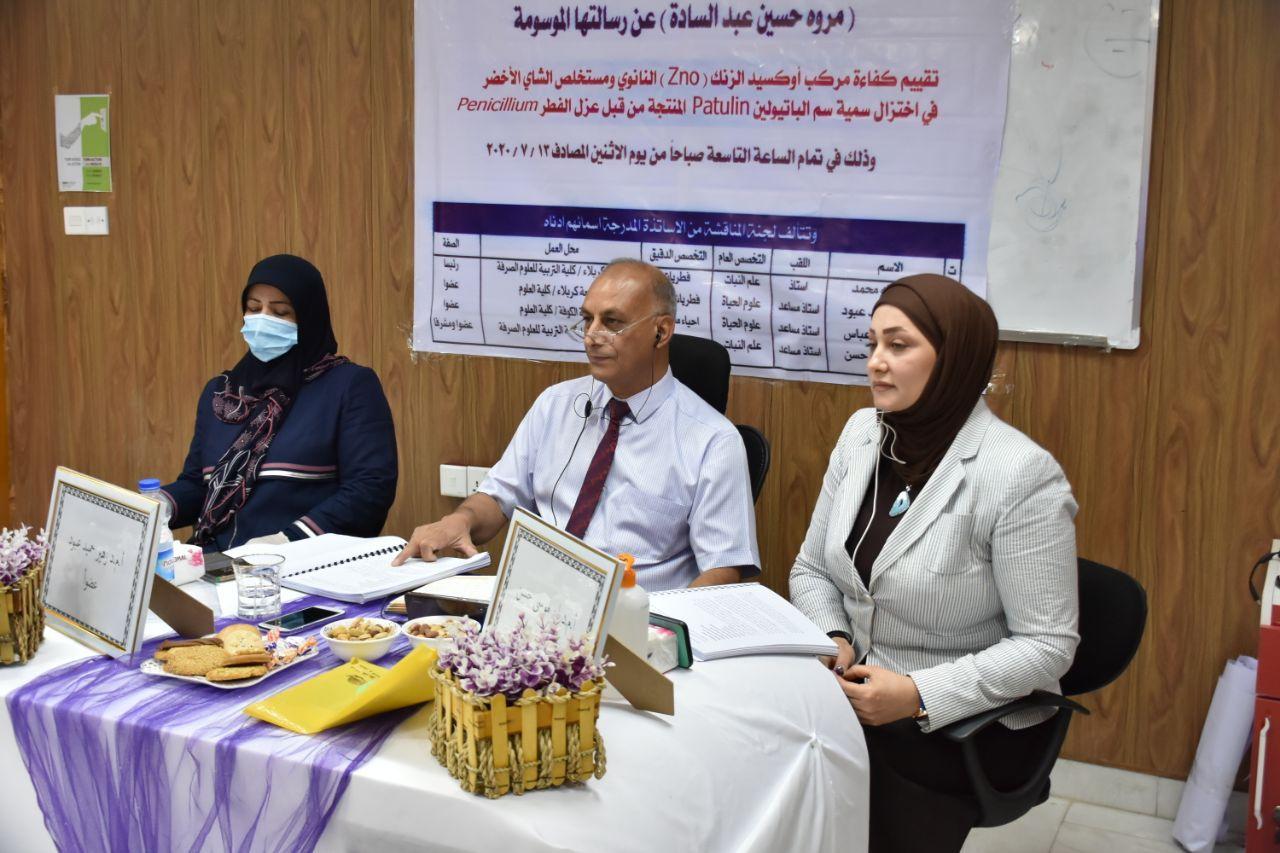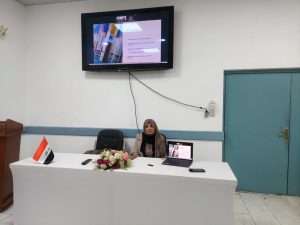The Faculty of Education for Pure Sciences at Kerbala University discussed an M.A. thesis entitled” Assessing the efficiency of the zinc nanoparticle (ZNO) and green tea plant extract in reducing the toxicity of patulin toxin produced by the isolation of the penicillium mushroom:, and some members of the committee are contacted through the ZOOM platform.
The thesis, submitted by the student Marwa Hussein Abdel-Sadah, aims at conducting a survey of penicillium mushroom isolates within the local environment and from various sources, and to reveal the possibility of its production of toxin patulin using TLC technology, and to explore the possibility of inhibiting the growth of toxic mushrooms by extracting alcoholic and aqueous green tea.
The thesis discusses ways to detect the possibility of inhibiting the growth of toxic fungi by the commercial Zno nanoparticle, and to study the complementarity between green tea extract and nanoparticle zinc oxide in reducing the toxicity of the penicillium fungus outside of vivo,
The discussion demonstrated the ability of TLC technology to isolate the fungi to produce patulin toxin.
The thesis explains that the efficiency of zno nanoparticle oxide which is to inhibit the growth of fungi, and that the alcoholic extract of green tea plant was better than the aqueous extract in inhibiting the growth of fungi, green tea contains a group of active compounds that have a role in inhibiting the growth of the two fungi studied such as phenols, Coumarins and others.
The discussion recommended the use of other plant extracts that may be more efficient in inhibiting the growth of toxins producing fungi, the use of other nanocomposites and comparison with the nanoscale zinc nanoparticle in its inhibitory effect on toxic fungi, recommending the trend to obtain inexpensive nanomaterials and testing its safety for use in covering the foodstuffs of the province On it are fungi and microorganisms.
































































